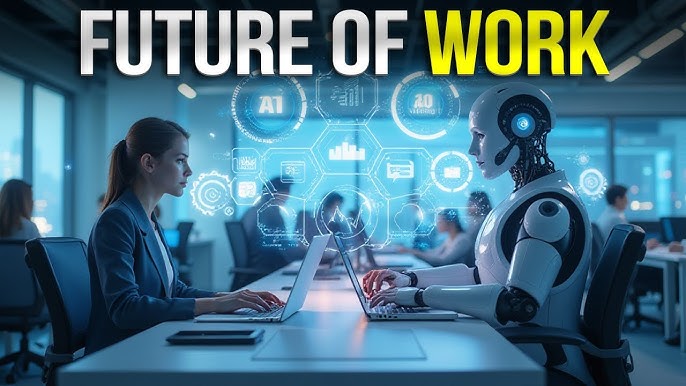Articles and Trivia
Write an articleWill Machines Replace Humans? The Future of Work

We are living in a time of rapid change. Technology is growing faster than ever, and machines are now doing things we once thought only humans could do. From robots in factories to AI in offices, machines are becoming a big part of our working world. This leads to an important question: Will machines replace humans in the future?
The Rise of Machines
Machines have already taken over many jobs, especially those that are repetitive and manual. For example, in factories, robots can assemble products faster and more accurately than humans. In offices, Artificial Intelligence (AI) can sort data, answer customer questions, and even write emails. These changes help companies save time and money.
What Jobs Are at Risk?
Some jobs are more likely to be replaced than others. These include:
-
Data entry jobs
-
Cashiers
-
Drivers (due to self-driving vehicles)
-
Manufacturing workers
On the other hand, jobs that require creativity, emotional intelligence, and decision-making are harder to replace. These include:
-
Teachers
-
Doctors
-
Artists
-
Psychologists
-
Business leaders
Human Skills Still Matter
Even though machines are smart, they don’t have feelings, morals, or imagination. Humans can understand emotions, build relationships, and solve complex problems. These skills are important in many careers. In fact, the future may need humans and machines to work together, not compete.
For example, a doctor might use AI to get faster test results, but the final diagnosis still depends on the doctor’s judgment and experience.
Preparing for the Future
To succeed in the future, we need to focus on learning new skills:
-
Critical thinking
-
Creativity
-
Communication
-
Tech knowledge
Students should explore courses in AI, coding, digital marketing, and other modern fields. At the same time, soft skills like teamwork and adaptability will be just as important.
Final Thought
So, will machines replace humans? The answer is not completely. Machines will take over some jobs, but they will also create new ones. The future will belong to those who are ready to learn, adapt, and grow with technology. Instead of fearing machines, let’s focus on becoming better humans — because the world will always need the human touch.


